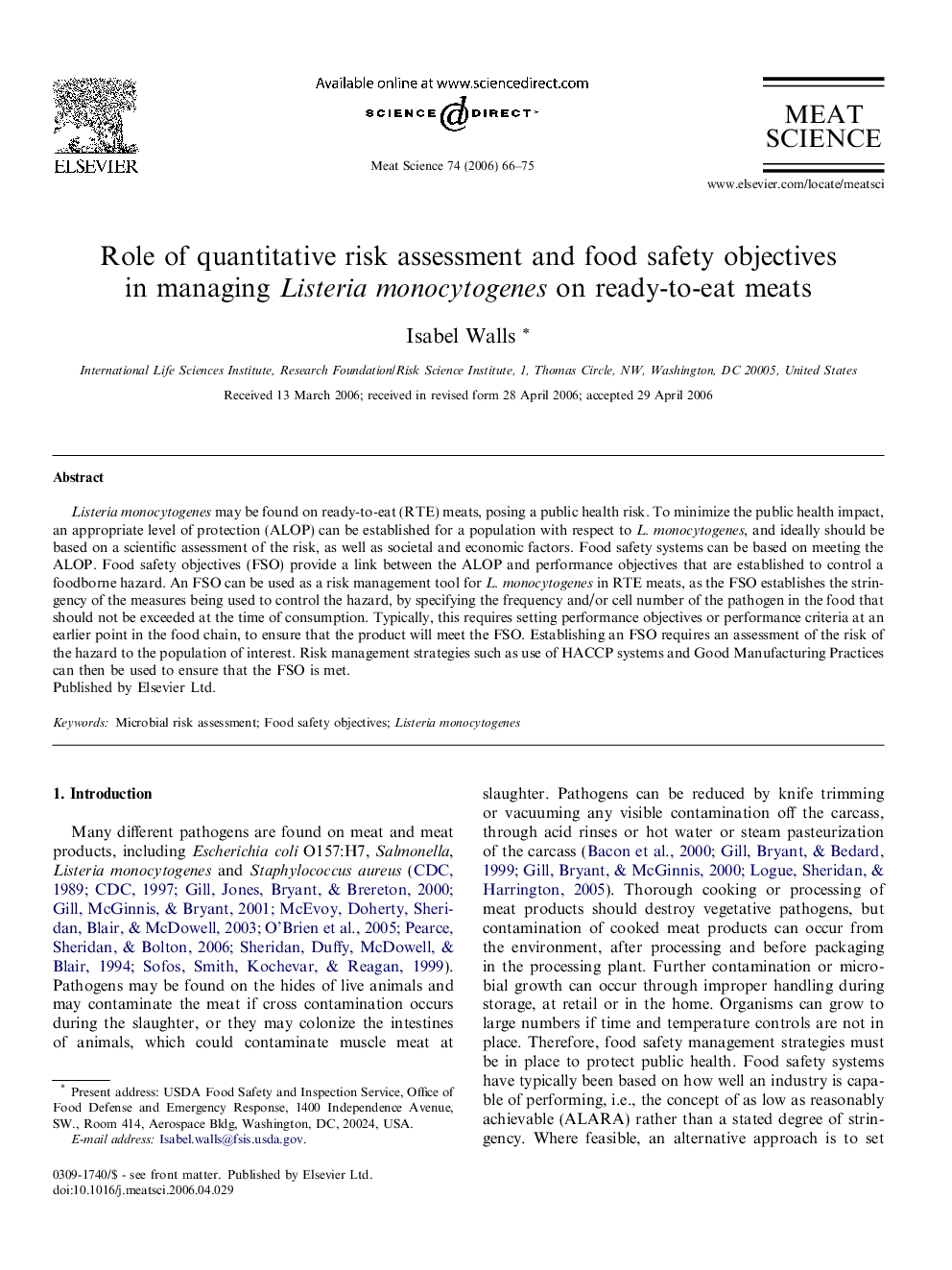| Article ID | Journal | Published Year | Pages | File Type |
|---|---|---|---|---|
| 2452214 | Meat Science | 2006 | 10 Pages |
Listeria monocytogenes may be found on ready-to-eat (RTE) meats, posing a public health risk. To minimize the public health impact, an appropriate level of protection (ALOP) can be established for a population with respect to L. monocytogenes, and ideally should be based on a scientific assessment of the risk, as well as societal and economic factors. Food safety systems can be based on meeting the ALOP. Food safety objectives (FSO) provide a link between the ALOP and performance objectives that are established to control a foodborne hazard. An FSO can be used as a risk management tool for L. monocytogenes in RTE meats, as the FSO establishes the stringency of the measures being used to control the hazard, by specifying the frequency and/or cell number of the pathogen in the food that should not be exceeded at the time of consumption. Typically, this requires setting performance objectives or performance criteria at an earlier point in the food chain, to ensure that the product will meet the FSO. Establishing an FSO requires an assessment of the risk of the hazard to the population of interest. Risk management strategies such as use of HACCP systems and Good Manufacturing Practices can then be used to ensure that the FSO is met.
